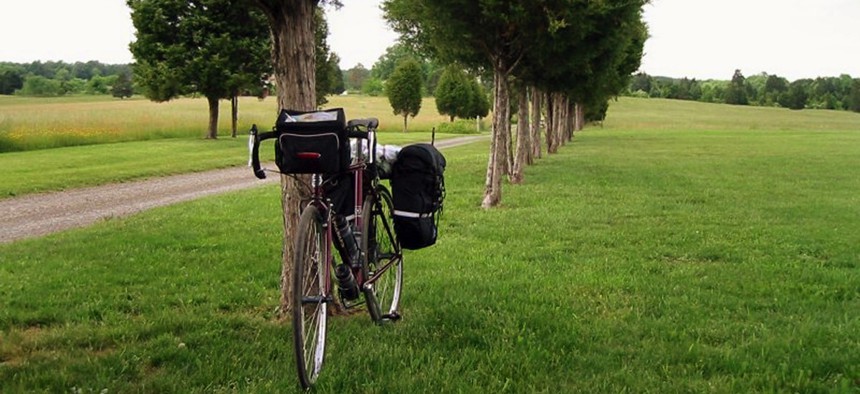Trump Admin., ACLU Accuse Virginia County of Muslim Discrimination

Culpeper, Virginia Calvin Woodward / AP Photo

Connecting state and local government leaders
Also in our State and Local Daily Digest: Abortion settlement affects Idaho's budget vote; out-of-state think tanks oppose Kansas Medicaid expansion; and Baltimore's minimum wage hike clears latest hurdle.
DISCRIMINATION | The Trump administration and American Civil Liberties Union, in a rare team-up, are accusing Culpeper County, Virginia of discrimination in court for denying a sewage permit to Muslims seeking to build a mosque. Even the ACLU was surprised with the administration’s decision to continue with the case, likely because it involves the Religious Land Use and Institutionalized Persons Act that protects all religions against land-use policy discrimination. County supervisors deny the accusation, but their emails indicate they were aware of public opposition to the mosque. And they’ve issued such permits dozens of times in the past. [The Associated Press via McClatchy]
STATE BUDGETS | Idaho House legislators narrowly approved state Attorney General Lawrence Wasden’s budget, after his office settled a lawsuit with Planned Parenthood over two laws banning women from receiving abortion-inducing medicine medication through telemedicine. Nevermind the fact a U.S. District judge had warned Wasden that, if the laws weren’t repealed, he’d make a precedent-setting ruling declaring them unconstitutional. “If he’s not going to defend us 100 percent, then I don’t think his budget should be funded 100 percent,” said state Rep. Greg Chaney, a Republican. [MagicValley.com]
The Montana legislature’s $10 billion budget proposal includes “unnecessary cuts” to government services, said Gov. Steve Bullock. A 5 percent cut across all government agencies equals a $23 million loss for the Montana University System, necessitating a $1,000 in-state tuition increase, and hospice programs are also on the chopping block. Bullock has suggested $280 million in new taxes. [Billings Gazette]
MEDICAID | Libertarian think tank the Cato Institute and free market think tank the Foundation for Government Accountability criticized Kansas legislation, passed by the state House, that would expand Medicaid eligibility to 150,000 low-income residents as shortsighted. The out-of-state groups argued expansion could cost as much as $730 million over seven years and require a substantial tax hike, and it would prioritize able-bodied adults. Proponents estimate Kansas missed out on a $1.7 billion infusion into the state health care system not expanding Medicaid sooner. Gov. Sam Brownback is opposed to the bill. [The Topeka Capital-Journal]
MINIMUM WAGE | As expected, Baltimore City Council passed a bill to raise the minimum wage to $15 an hour by 2022, despite resistance from Mayor Catherine Pugh’s finance department. Twelve votes would be needed to override a Pugh veto, and Monday’s vote was 11-3 with one supportive councilman overseas. [The Baltimore Sun]
SHUTDOWN | New Mexico Gov. Susana Martinez’s threat of a state government shutdown, after vetoing the legislature’s proposed budget Friday, doesn’t phase the mayor of Las Cruces. "We really don't rely on state funding too much other than some road improvements," said Mayor Ken Miyagishima. The city uses less than $1 million from the state on city projects each year. Public schools are the real losers, Miyagishima said. [KVIA]
ARENAS | Cleveland City Council is considering a $140 million renovation of the Quicken Loans Arena, where the NBA team the Cleveland Cavaliers play. The first step is committing $88 million in admissions tax revenues between 2024 and 2034, which passed 17-0. Quicken Loans is one of the only NBA arenas without an upgrade. [Cleveland.com]

NEXT STORY: Philadelphia starts mapping its smart city future





